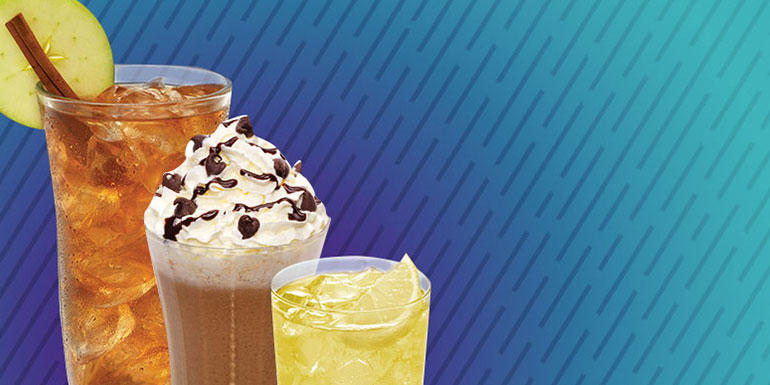
Specialty Beverages: A Differentiator for Any Daypart
Use products already on hand to create special drinks all day

Specialty beverages can deliver competitive differentiation for foodservice operators, while enhancing the customer experience with variety and customization.
Often operators can launch a specialty beverage program using products they already have on hand, blending them into high-margin concoctions that can cater to a range of consumer preferences and complement any meal.
“Specialty beverages are unique, because they involve a cross-section of different categories, and there are opportunities to promote them across different dayparts,” says Thays Morgan, senior manager for strategy, planning and development for the full-service restaurant channel at Coca-Cola. “Whether it is a smoothie in the breakfast daypart, a lemonade with lunch, or specialty sodas with lunch or dinner, or even specialty coffees and specialty teas, there is an opportunity to leverage specialty beverages.”
In addition to their role in the primary dayparts, specialty beverages can also help satisfy consumers’ increasing interest in snacking, says Morgan. More than two-thirds of consumers say they incorporate a beverage into their between-meal snacks or indulge in beverage-only snacking occasions, according to research conducted for Coca-Cola by Datassential.
Sales of nonalcoholic specialty beverages — which include teas, lemonades, limeades, shakes, smoothies and sodas — are projected to grow 16 percent between 2014 and 2017, according to Mintel research provided by The Coca-Cola Company. These specialty beverage products will account for 20 percent-plus of foodservice beverage growth during the next three to five years.
“That’s one of many reasons specialty beverages are important for foodservice operators,” says Morgan.
Positioned as premium products, specialty beverages can also carry higher profit margins. At the same time, their customer appeal can drive beverage incidence, which can boost check averages, she points out.
Variety and customization
A key benefit conferred by having a strong specialty beverage program is that it can augment the customer experience. The Mintel research shows that 70 percent of consumers are interested in trying new varieties of specialty beverages.
These types of drinks can also help operators incorporate an element of customization into their offerings, an important attribute for many quick-service and fast-casual operators. Specialty beverages such as smoothies, for example, allow diners to personalize their orders by selecting from a menu of ingredients.
“Specialty beverages provide a value and a premium experience that really represent this over-arching trend around customization,” says Morgan.
Assessing inventory
It may be easier than many operators believe to launch or expand their specialty beverage program, Morgan explains.
Specialty beverages can often be created using products that operators are likely to have on hand, such as teas, sparkling beverages, juices and smoothie ingredients. Those items and other common inventory can play multiple roles in developing a specialty beverage offering.
“I would say that one of the first hurdles to overcome is recognizing that you are capable if you have the right equipment and the right ingredients,” says Morgan. “The Coca-Cola Company has developed turnkey solutions to help our operator partners get into specialty beverages and become their own in-house experts.”
One of the first steps operators should take in consultation with their Coca-Cola account representative is to conduct an initial inventory assessment, and determine how to optimize it.
“Clearly there is a cost involved with bringing in new ingredients, and I know many operators want to maximize the ingredients they have in-house,” says Morgan.
Another important step is identifying the objective of the specialty beverage program. Will it be designed to target a particular group of consumers, for example?
The Coca-Cola Company can supply research that helps operators select the right beverage offerings that appeal to particular consumer demographics.
Operators must also decide if they want to develop new specialty beverages as limited-time offers, or if they would rather showcase a new signature beverage that will be part of a core menu offering going forward, or perhaps both.
In any case, The Coca-Cola Company offers turnkey solutions, says Morgan. The Company’s Recipe Box allows foodservice operators to search for specialty beverage recipes using an array of filters that can sort by such variables as product brands, food pairings, and other factors.
The Coca-Cola Company also has a partnership with Blendtec, a supplier of blenders, that can help operators meet their equipment needs.